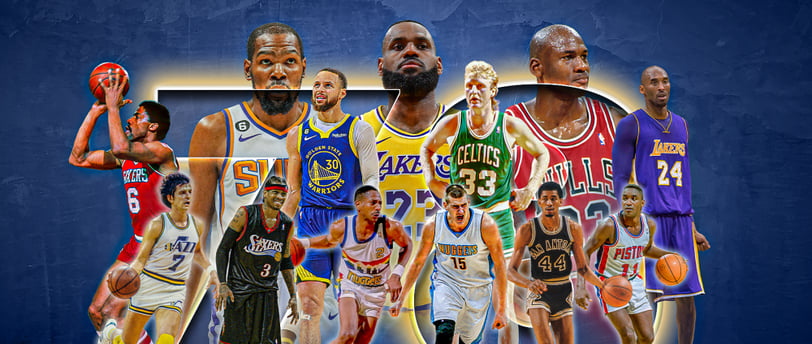“In the NBA, if you touch a player, it's a foul”: a statement that reignites the debate on the intensity of the game
A difference in culture between the NBA and European basketball
BASKETBALL
Par louis emmanuel
6/8/20252 min read


This phrase, often heard in European basketball circles, sums up a recurring criticism of the NBA style of play: “In the NBA, if you touch a player, it’s a foul.” For some, it reflects a lack of physical intensity and a softening of officiating in the American league. For others, it reveals a conscious effort to protect the spectacle—and its stars. So what’s the truth?
A Style of Officiating Focused on Entertainment and Safety
The NBA is first and foremost a global entertainment league, and in that context, spectacle takes priority. Its rules and refereeing tend to promote fluid play, attacking basketball, and injury prevention. This means even minor contact may be quickly whistled to avoid dangerous situations.
This approach stands in contrast to what is common in European or FIBA competitions, where physical intensity is more tolerated, and contact is often seen as an essential part of the game.
A Constant Evolution of NBA Rules
It’s true that over the years, the NBA has adjusted several rules to favor offensive players: limited help defense, restrictions on hand-checking, rules on lateral defensive movements, and more. This has led to a faster, more open game, with a strong focus on scoring—sometimes at the expense of rugged defense.
This evolution has frustrated some basketball purists, particularly in Europe, where defensive discipline, physical contact, and collective structure are more highly valued.
A Style Not Suited to Every Profile
European players coming to the NBA often have to adapt their defensive habits. Those known for toughness or “body-to-body” defense must learn to defend more cleanly. Conversely, offensively gifted players like Luka Dončić or Nikola Jokić have thrived in a game that rewards creativity and offensive IQ.
But the adjustment isn’t always easy, hence the sarcastic remark: “In the NBA, if you touch, it’s a foul.” It reflects how European-style defensive aggression is often penalized in the U.S.—a source of frustration for some players and coaches.
Protecting Stars: A Strategic Marketing Move?
It would be naïve to think that NBA officiating trends are purely about sportsmanship. By protecting its stars, the NBA also protects its product. A player like Stephen Curry, LeBron James, or Ja Morant must be able to showcase his talent without constant risk of injury from contact-heavy defense.
This also boosts high-scoring games, which are more popular with fans and broadcasters.
Stricter Officiating Doesn’t Mean Weak Basketball
Despite criticism, strict refereeing shouldn’t be confused with weak competition. The NBA is still the highest level of basketball in the world, demanding elite physical, technical, and mental performance. Fouls being called more quickly doesn’t mean players are “protected”—it means they operate in a framework designed for safety and flow.
It’s also worth noting that playoff officiating is often more lenient, allowing more physical play and higher intensity.
Two Basketball Cultures, One Sport
The saying “In the NBA, if you touch, it’s a foul” reflects a deep cultural difference between North American and European basketball. The NBA values fluidity, star protection, and entertainment. Europe emphasizes grit, engagement, and discipline.
Yet the two worlds enrich each other. More and more players succeed in both arenas, proving that true basketball talent adapts to all environments. In the end—whether you touch or not—skill always speaks loudest.
